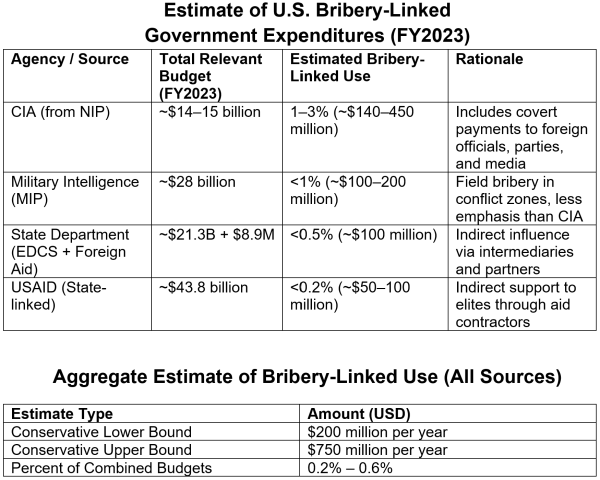Thinking about how to lower your tax bill and boost your retirement nest egg at the same time? Your 401(k) plan might just be the solution you’re looking for. Whether you’re new to saving or simply revisiting your investment strategy before filing your tax return, it’s important to understand how your 401(k) contributions affect your taxable income, paycheck, and future retirement income.
Let’s unpack the numbers, the tax rules, and the big-picture benefits to help you maximize your 401(k) plan.
At a glance
A 401(k) account offers built-in tax advantages, including tax-deferred growth and essentially a “tax deduction” by lowering your taxable income.
Contributions are typically pre-tax, lowering your taxable income and the amount of federal income tax you owe.
Not ready to make a withdrawal? You might be able to take a 401(k) loan instead without triggering a penalty or additional tax.
What is a 401(k) plan?
A 401(k) is a type of retirement account that allows employees to set aside a portion of their paycheck, often before taxes are taken out. This means your 401(k) contributions reduce your taxable income, saving you money now. The IRS introduced the 401(k) plan in 1986 to help workers save for retirement.
Many employers also pitch in with employer contributions, either matching your contribution amount fully or partially up to a certain percentage. These employer contributions are not taxed as earned income when made but will be taxed when you make 401(k) withdrawals later in retirement.
So, a 401(k) isn’t just a retirement plan — it’s a tax strategy, too.
Types of 401(k) accounts
There are several types of 401(k) plans, and the one you choose can impact how your money is taxed going in and coming out.
Traditional 401(k): The most common type of 401(k), and the one we will discuss in the rest of this article. Contributions are pre-tax, and withdrawals in retirement are taxed as ordinary income.
Roth 401(k): Funded with after-tax dollars. You won’t get an upfront tax deduction or reduction to your taxable income, but your retirement income is generally tax-free, like a Roth IRA.
SIMPLE 401(k): Designed for small business owners with fewer than 100 employees.
Safe Harbor 401(k): Similar to a traditional 401(k), but it allows employees to fully own employer contributions immediately.
Solo 401(k): Perfect for self-employed individuals or contractors with no employees. This plan offers generous contribution limits and the same tax benefits as traditional options.
How 401(k) plans work: contribution limits and withdrawals
Employer-sponsored 401(k) plans come with some limitations on how much you can contribute and when you can make a penalty-free withdrawal. Let’s break it down.
401(k) limits for 2025
For individuals under age 50: You can make up to $23,500 in contributions per year (up from $23,000 in 2024).
For those age 50 or older: You can add an additional catch-up contribution of $7,500, for a total limit of $31,000 per year.
These limits apply to both traditional 401(k) and Roth 401(k) accounts. Typically, the IRS adjusts the limits to keep up with inflation each calendar year.
Withdrawals and 401(k) taxes
When you withdraw money from your 401(k), the tax treatment depends on the type of account. For traditional 401(k)s, you’ll pay ordinary income tax on the amount withdrawn. For Roth 401(k) plans, qualified withdrawals are generally tax-free.
Required minimum distributions (RMDs)
Starting at age 73 (or 75 depending on your birth year), you’re required by the IRS to begin taking annual withdrawals called required minimum distributions (RMDs) from your traditional 401(k), even if you don’t need the money yet. Skipping an RMD can trigger an additional tax of up to 25% of the amount you should have taken.
Early withdrawal penalty
Pulling funds out of your 401(k) before age 59 ½ can come with hefty penalties. The IRS usually imposes a 10% early withdrawal penalty, plus you’ll owe federal income tax and possibly state income tax on the amount.
There are some exceptions (such as for certain medical expenses, qualified higher education costs, or first-time home purchases), but it’s always worth thinking twice before dipping into your retirement savings early!
401(k) rollovers
A 401(k) rollover lets you move funds from one retirement account to another, usually without triggering taxes or penalties. If you change jobs or retire, you might decide to roll over your 401(k) into a traditional IRA or a new employer’s 401(k) plan. Here’s how the process works:
Direct rollover: This is typically the safest and most efficient option. Your plan administrator sends the funds directly to the new account, and no taxes are withheld.
Indirect rollover: The money comes to you first, usually by a mailed check. You must deposit it into a new qualified plan within 60 days or it may count as a distribution, triggering taxes and possibly an early distribution penalty.
There is no limit to the number of 401(k) rollovers you can do per year. Rollovers can be a smart move if you want more control over your investments, lower fees, or easier account management. Just make sure you follow IRS rules to avoid unexpected tax liability.
401(k) tax forms
Managing your 401(k) isn’t just about contributions and withdrawals — you’ll also encounter specific IRS tax forms when it’s time to file your tax return. Here’s what to look out for:
Form 1099-R: If you took any distributions from your 401(k) account, you’ll receive this form. It reports the total amount you withdrew, along with how much tax (if any) was withheld.
W-2 (Box 12): This is where your 401(k) contributions are recorded if you contribute through your employer. Look for codes like “D” (elective deferral to a 401(k)) or “AA” (Roth 401(k)). These show how much of your income was deferred to your 401(k) plan.
Form 5329: You’ll need this if you owe an early withdrawal penalty or if you didn’t take RMDs on time. It calculates any additional tax owed.
If you need help making sense of all these forms, TaxAct® can help! Our tax preparation software makes it easy to report 401(k) distributions, and we’ll walk you through it step by step. Whether you’re dealing with Form 1099-R, checking Box 12 on your W-2, or wondering how your contributions lowered your taxable income, we’ve got the tools and guidance to help you file with confidence.
5 tax-saving strategies for your 401(k)
1. Lower your taxable income with a 401(k).
One of the biggest 401(k) perks? Contributions made to a traditional 401(k) are pre-tax (deducted from each paycheck before taxes are taken out), reducing your adjusted gross income (AGI) and the amount of income tax you owe.
Example
For instance, say you make $60,000 annually through an employer. Let’s assume 20% of your take-home pay goes to taxes annually. That results in you paying $12,000 in taxes each year, which in turn reduces your take-home pay to $48,000.
But say you start contributing 5% of your pay into your employer-sponsored 401(k) plan:
5% (contribution rate) of $60,000 (annual salary) = $3,000 saved for retirement (pre-tax)
This lowers your total taxable income to $57,000.
20% (hypothetical tax bracket) of $57,000 (taxable income after contributions) = $11,400 tax bill, saving you $600 compared to before.
Plus, you saved an additional $3,000 for retirement in this scenario — win-win!
2. Save on taxes from investment earnings.
Another 401(k) perk? Any investment growth inside your 401(k) — like dividends, interest, or capital gains — isn’t taxed while it stays in your account. That’s the beauty of tax-deferred growth.
Compare that to a savings account, where you’ll pay taxes every year on the interest you accumulate. Unlike money stored in the bank, you don’t have to pay taxes on money earned from your 401(k) investments until you withdraw.
3. Increase contributions to maximize your tax benefits.
The more you contribute to your 401(k) plan, the more you could reduce your tax liability and boost your retirement savings at the same time.
You can adjust your 401(k) contributions through your 401(k) provider/brokerage or your HR department. Choose either a flat dollar amount or a percentage of your pay. Even a 1% increase from last year can make a big impact on your future retirement income and current tax savings.
4. Think 401(k) loan, not hardship withdrawal.
Sometimes life happens. If you’re tempted to dip into your 401(k) early to cover unexpected expenses, remember that early withdrawals (before age 59 ½) can come with a 10% early withdrawal penalty, on top of federal income tax and state tax, if applicable.
You may qualify for a hardship withdrawal if you meet IRS criteria, but it’s often better to consider a 401(k) loan if your plan allows it. Unlike hardship withdrawals, loans must be paid back. But 401(k) loans are not taxable (as long as you repay them on time) and allow you to avoid the additional tax hit.
Not all employer plans allow 401(k) loans, so be sure to check with your company’s 401(k) administrator for all the details ahead of time.
5. Time your 401(k) withdrawals wisely.
When you do start taking money out, aim to do it after age 59 ½. That way, you’ll avoid penalties, and you might even fall into a lower tax bracket, meaning your 401(k) withdrawals will be taxed at a lower income tax rate.
401(k) taxes FAQs
The bottom line
Whether you just started saving for retirement or you’re fine-tuning your financial planning, your 401(k) offers some pretty amazing tax benefits. By contributing pre-tax dollars, taking advantage of employer contributions, and avoiding early withdrawals, a 401(k) can help you build a solid nest egg and potentially lower your federal tax each tax year while you’re at it.
Ready to file your taxes? As always, TaxAct can walk you through how to report your 401(k) taxes, understand your tax deductions, and help you file with confidence.
This article is for informational purposes only and not legal or financial advice.
All TaxAct offers, products and services are subject to applicable terms and conditions.

























